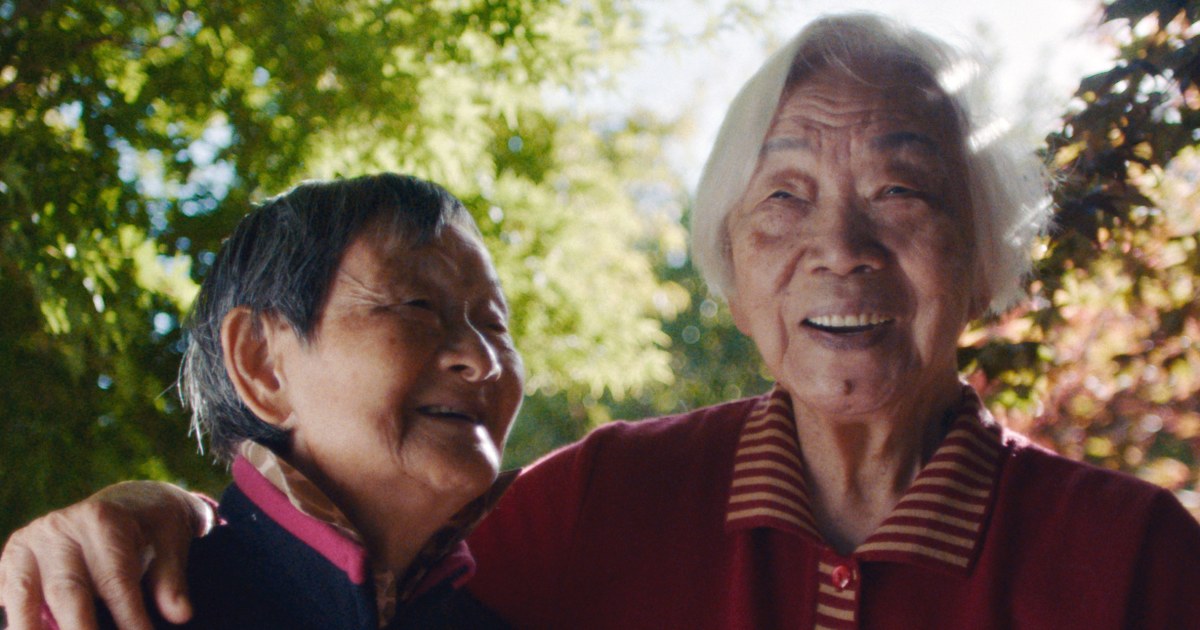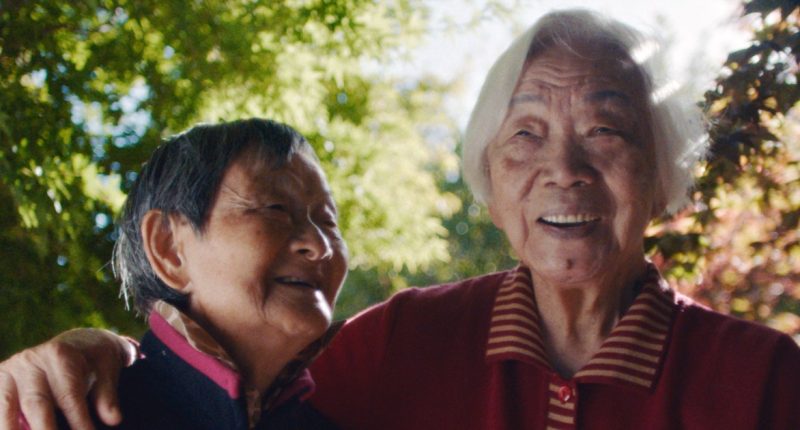
Behind the giggles and farts shared between the two Taiwanese immigrant grandmas who star in the documentary short “Nai Nai & Wài Pó” is a critical statement about anti-Asian hate, the film’s director said.
Director Sean Wang, whose film follows his own grandmothers, who live together as platonic soulmates, said he made the short as a counter to the narratives around Asian elders during the height of the coronavirus pandemic.
“When I saw the headlines during that time, and when I saw people like my grandmothers portrayed in the media … they painted them as these people who were just sort of victimized and overlooked,” said Wang, who spoke to NBC News ahead of Sunday’s Oscars, at which the film is nominated for best documentary short. “What I was trying to get at was trying to make something where if you saw the film, the next time you see someone who looks like them on the streets, you really see a human being.”
The 17-minute documentary takes an intimate look at the unique sisterhood between Nǎi Nai and Wài Pó, Wang’s paternal and maternal grandmothers. The pair initially met because of Wang’s parents and took a particular liking to each other. They became close after the deaths of their husbands, and eventually they chose to live together. In the film, the grandmothers spend their days reading the paper, throwing two-person dance parties and pulling other shenanigans while ending their nights by sleeping in the same bed. There’s also the occasional fart or two.
The film is littered with short, hilarious “skits” orchestrated by Wang, in which the pair make it rain with some cash from the top of the stairs, chug whiskey from the bottle and arm wrestle. The doc may be rife with laughter and moments of levity, but it also doesn’t avoid talk of mortality and loss.
“The days we spend feeling pain and the days we spend feeling joy are the same days spent,” Nǎi Nǎi says in Mandarin. “So I’m going to choose joy.”
Wang, who spent some time with the pair during the height of the pandemic, said the short also touches on how the attacks affected the women. In one scene, the grandmothers reveal their fears about leaving the house, confirmed by what they see in the news. That tension, he said, was an undercurrent in the film.
“It was an antidote to the helplessness that I was feeling, the anger that I was feeling, the sort of antidote to all the ugly,” he said. “I’d walk into the room and we’d start dancing and we’d joke around.”
While the project was, in part, a reaction to that era of anti-Asian hate, Wang said he didn’t feel it was necessary to make an explicit statement about the issue in the film. All he had to do was showcase the pair being authentically themselves.
“We didn’t want to make something that was so politically loaded,” Wang said. “I really wanted to just lean on them and focus it on my grandmothers and really make it about them, knowing that their humanity was worthy of a big-screen experience.”
The filmmaking process also proved to be empowering for the grandmas themselves. He said that by giving them the floor to play, the film let them lean in to their childlike, infectious energy in a way they never had before. And seeing the way others have connected with the film has further bolstered their spirits.
“Even when we were shooting the film, they were like, ‘Why would you want to make a movie about us? We’re old and ugly.’ That’s their words,” he said. “Now that the movie is out and has found an audience that’s larger than any one of us could have ever sort of anticipated. I think, following up with them, they’re like, ‘We do feel prettier in a way; we do feel more alive and seen.’”
Much of the film feels familiar to Asian Americans. There are distinctly cultural elements like the way the pair, who are best friends, choose to share a bed. And how they power their way through a series of stretches in the yard. Wang, whose early influences lie largely in the “fearlessness” of skate videos, said he never felt pressured to dilute their lives for a wider audience.
“It was joyful, but it was an act of resistance,” he said. “We’re not going to explain anything. We don’t need to explain anything. These are my grandmothers. This is their lives. And if you don’t get it, you don’t get it.”
“Nai Nai & Wài Pó” is up against several other critically acclaimed shorts, including “The ABCs of Book Banning,” “Island in Between” “The Barber of Little Rock” Christine Turner” and “The Last Repair Shop.” But it has already won in its own way.
“The movie was just a container for all of the different versions of them — a film about farts and death, which is kind of who they are,” Wang said.
Source: | This article originally belongs to Nbcnews.com










